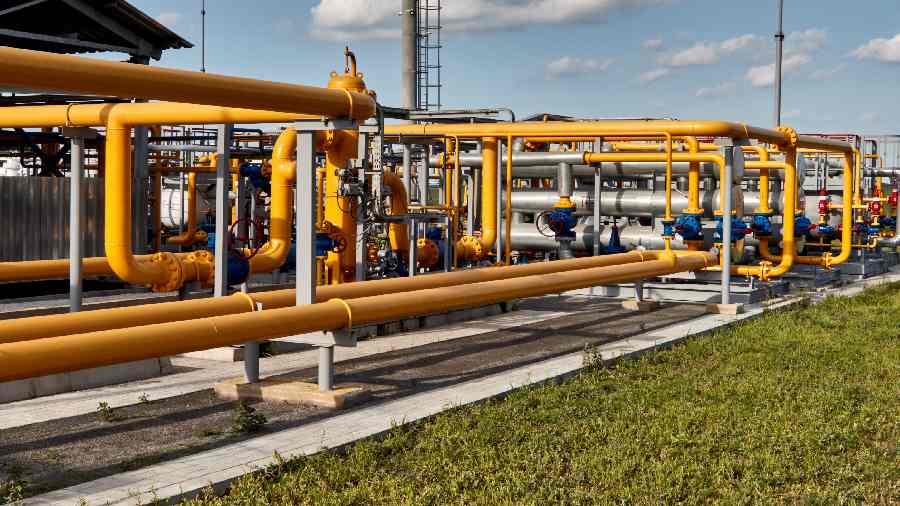The European Commission on Wednesday unveiled a 210 billion euro plan for Europe to end its reliance on Russian fossil fuels by 2027, and to use the pivot away from Moscow to quicken its transition to green energy.
The invasion of Ukraine by Russia, Europe’s top gas supplier, has prompted the EU to rethink its energy policies amid sharpened concerns of supply shocks. Russia supplies 40 per cent of the bloc’s gas and 27 per cent of its imported oil, and EU countries are struggling to agree sanctions on the latter.
To wean countries off those fuels, Brussels proposed a three-pronged plan: a switch to import more non-Russian gas, a faster rollout of renewable energy, and more effort to save energy.
The measures include a mix of EU laws, non-binding schemes, and recommendations to governments in the EU’s 27 member countries, who are largely in charge of their national energy policies.
Taken together, Brussels expects them to require 210 billion euros in extra investments by 2027 and 300 billion euros by 2030 on top of those already needed to meet the bloc’s 2030 climate target. Ultimately, it said the investments would slash Europe’s fossil fuel import bill.
“RePowerEU will help us to save more energy, to accelerate the phasing out of fossil fuels and, most importantly, to kick-start investments on a new scale,” commission president Ursula von der Leyen said, referring to the package.
Those investments include 86 billion euros for renewable energy and 27 billion for hydrogen infrastructure, 29 billion euros for power grids and 56 billion euros for energy savings and heat pumps.
The commission said some investments in fossil fuel infrastructure would be required — 10 billion euros for a dozen gas and liquefied natural gas projects, and up to 2 billion euros for oil, targeting land-locked central and eastern European countries that lack access to non-Russian supply.
Campaigners said those investments risked locking the EU into long-term reliance on CO2-emitting gas, fuelling climate change and high energy prices. The commission said new gas infrastructure should be able to switch to carry renewable hydrogen in future.
Brussels wants countries to finance the measures using the EU’s Covid-19 recovery fund, which contains more than 200 billion euros of unspent loans. The commission will also sell extra carbon market permits from a reserve over the next few years to raise 20 billion euros. Some analysts warned that could dampen carbon prices, undermining the price signal to shift to low-carbon energy.
To spearhead the plans, the commission proposed a higher legally-binding target to get 45 per cent of EU energy from renewable sources by 2030, replacing its 40 per cent proposal. That would see the EU more than double its renewable energy capacity to 1,236 gigawatts by 2030.











